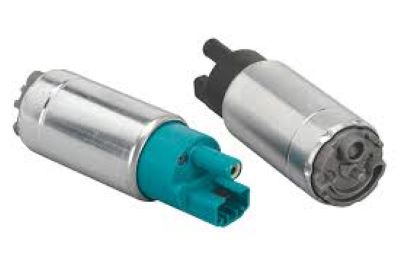Maven Yes, a defective fuel pump can cause the engine to surge. This fuel pressure change will result in erratic engine operation should the fuel pump not be able to consistently supply a steady amount of fuel. Hence repair of pump driver account for nearly about 25% of all the fuel delivery problems which is the root cause of surging on acceleration or continued speed.
High-performance engines require a consistent fuel pressure of about 50 to 60 psi for it to perform at its best. If the fuel pump is incapable of meeting this requirement, drivers may feel surging as the engine receives an inconsistent fuel supply. According to automotive expert Mark Baker, "A fuel system that is not running at its peak performance can cause significant problems with your vehicle's power and driveability."

A clogged or contaminated fuel pump can also cause surging. The problem can block the flow of fuel, meaning that the engine will lose power through starvation and then surge when more fuel finally does come around as the pump overfills. However, these risks can be somewhat limited by keeping up with regular maintenance practices like changing your fuel filters every 30,000 miles.
A bad fuel pressure regulator can, additionally, cause some surging by affecting the fuel pump operation. In the event that the regulator becomes stuck, it could pass along too much fuel pressure to the injectors, causing an irregular fuel supply The report states those spasmodic movements could cause a driver to lose control.
To ensure reliable delivery of fuel and to avoid surging; It is mandatory that your Fuel Pump works as it should. Identifying these problems sooner via regular diagnostics and servicing is important trait of services where complete engine performance in wide RPM range is top of the list.
